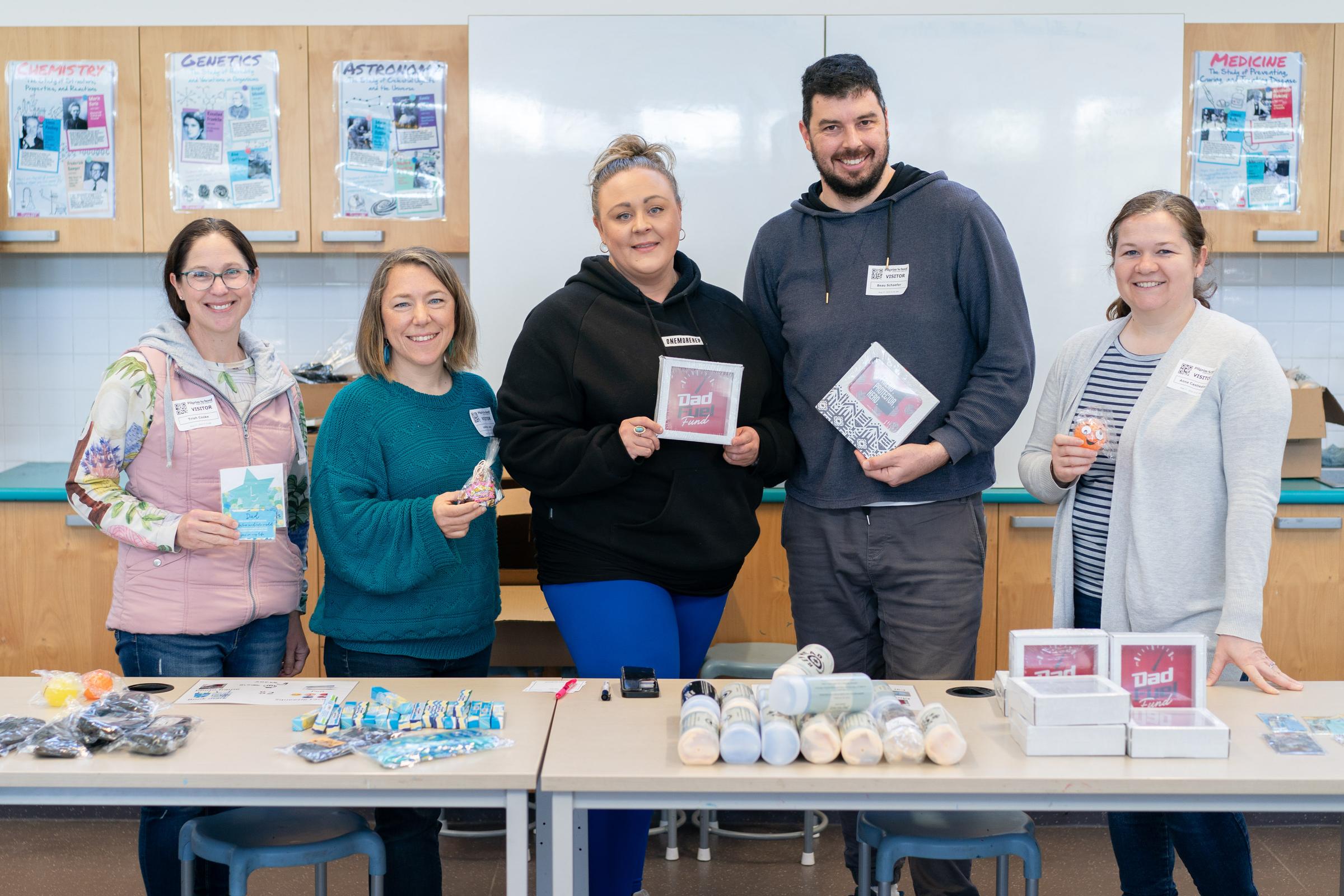Student, Parent and Staff Satisfaction

Students
Each of our home classes (from Year 3-6) elected two student representatives per semester to represent their class on our Student Representative Council (SRC). Our senior class elected four students for the entire year to assist in leadership across the school.
This group met twice a term to discuss suggestions for improvement around the school and ways to support others through fundraising opportunities such as casual days.
Student ideas resulted in improved processes for students to request wellbeing support, additional handballs for classes and handball court repairs.
Wellbeing and Engagement Survey
In 2024, Year 4-6 students at Pilgrim School again participated in the South Australian Wellbeing and Engagement Collection (WEC) Survey. The results continued to reflect a positive overall picture of student wellbeing and engagement, affirming the impact of our whole-school approach to emotional literacy, regulation, and supportive relationships.
Key improvements were noted in students’ self-reported levels of happiness and emotional regulation, aligning with Pilgrim’s ongoing implementation of Friendology and the Zones of Regulation. Encouragingly, there was also a decrease in the number of students reporting low wellbeing in key areas such as satisfaction with life and wellbeing literacy.
The data also highlighted areas for continued focus. A small increase in reported experiences of verbal and physical bullying suggests the need for sustained work in fostering positive peer relationships. In addition, some students indicated they were unsure whether they had an “important adult at school”, although other survey questions – such as “there is an adult who really cares about me” – showed significantly stronger positive responses. This discrepancy may reflect misunderstanding of the survey language, but it remains an area of exploration for staff.
When compared to state-wide data, Pilgrim School’s results remain strong, with higher-than-average levels of high wellbeing and lower-than-average low wellbeing responses across most domains.
Pilgrim School remains committed to nurturing the whole child - emotionally, socially, and spiritually - and will continue to use this data to guide future wellbeing initiatives, with a focus on strengthening connection, inclusion, and student voice.
Parents
At the end of 2024, Pilgrim School invited families to participate in a Parent Satisfaction Survey to gather feedback across key areas of school life, including teaching and learning, wellbeing, Christian values, communication, and overall satisfaction. A total of 31 parents participated in the survey, with 87% of respondents being families who enrolled within the past two years.
The overall satisfaction rating was 8.5 out of 10, and the Net Promoter Score (NPS) of 50 indicated a strong proportion of parents who would actively recommend Pilgrim to others. Parents consistently praised the school’s caring and respectful environment, the strong integration of Christian values, and the positive social and emotional development of their children.
Key highlights included:
- A high rating of 4.67/5 for staff respect toward students
- 78.6% of parents reported their child had a positive outlook on learning
- High satisfaction with teaching quality and staff dedication
- Recognition of Pilgrim’s welcoming and inclusive community
The launch of new wellbeing programs, such as Friendology, and strong pastoral care were also noted as areas of impact. Parents appreciated the friendly atmosphere and the commitment to developing the whole child.
This feedback is being used to guide improvements in 2025, including refining communication processes, enhancing engagement between parents and staff, and ensuring every child is known, encouraged and celebrated.
Staff
In 2024, our Principal, Mr Andrew Edmondson, prioritised deepening relational connection and reflective dialogue with all members of the Pilgrim staff team. As part of this commitment, Andrew met individually with each staff member, inviting them to reflect on their experience, contribution, and hopes for the future of our school. Four key questions framed these conversations:
- What do you love and enjoy most about working here?
- What is it about your role and your contribution to our school community that makes your heart sing?
- What would you most like to see adapted, changed, or transformed at Pilgrim?
- What are areas that our leadership team can encourage, assist, and support you in?
These questions generated rich and honest reflections, affirming Pilgrim’s unique culture and highlighting areas for continued growth. Staff expressed deep appreciation for the sense of belonging, shared purpose, and the opportunities to make a meaningful difference in the lives of students and families. This process not only strengthened relational trust but also informed leadership planning and team development as we looked ahead to 2025.
